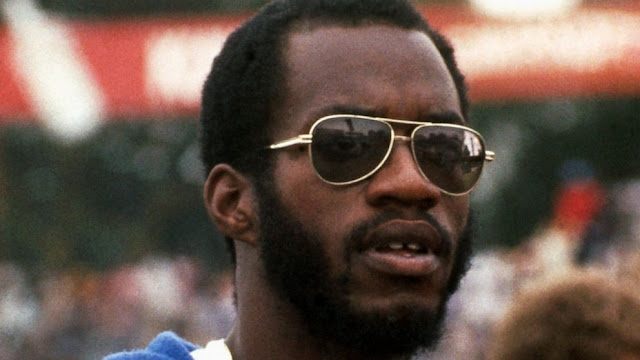40 Years Later
Vote to skip Moscow Games still 'Horrible'

DOSSIER - This 1979 archive photo shows Edwin Moses, Olympic
gold medalist in the 400 meters. Forty years ago this weekend, the American
Olympic Committee voted to boycott the Moscow Games in 1980. It was a decision
sparked by then president Jimmy Carter who wanted to send a message to the
Soviet Union to invade Afghanistan. The Soviet Union returned the favor by
boycotting the Los Angeles Games in 1984. Moses described the whole event as
horrible. More than 200 of the American athletes have never had another chance
to participate in the Olympic Games. (Photo AP) Credit: AP
DENVER - (AP) - By the time the news got out to him, Edwin
Moses had already left a promising engineering job to focus on a full-time
career on the track.
He already had an Olympic gold medal hanging on his wall. He
was lucky.
Hundreds of other American athletes would never have a
chance.
They were part of the 1980 U.S. Olympic team - the team that
never made it to the Moscow Games after President Jimmy Carter took the lead in
a now infamous, first of its kind, decision to boycott
Olympic Games.
The board of directors of the American Olympic Committee
approved Carter's decision 40 years ago, on Sunday, April 12, 1980.
"I had strayed from my career to prepare for the 1980 Olympics, and everything was theoretical," Moses told the Associated Press by phone. "So it was horrible. For me and for everyone. "
Moses said that as the heavy USOC delegation of nearly 2,400
people gathered at the Antlers Hotel in Colorado Springs, Colorado on a
Saturday morning in April, in the presence of Vice President Walter Mondale,
the team was far from over. would not travel to Moscow.

Carter started the push in late 1979, with the Soviet Union
supporting a military campaign in Afghanistan.
In her 2010 memoirs, Carter called it "one of my most
difficult decisions." Perhaps more telling, as former USOC spokesperson
Mike Moran wrote in a recap of the events that led to the boycott, was a
trade-off that late 1984 Olympic champion wrestler Jeff Blatnick, had with
Carter on a plane many years later.
"I'm going, 'President Carter, I've met you before, I'm an Olympian,'" said Moran in his account of Blatnick's story. "He looks at me and says, 'Were you on the 1980 hockey team? I say, "No sir, I'm a wrestler on the summer team." He said, "Oh, it was a bad decision, I'm sorry."
Forty years later, there is practically no debate on this
conclusion. And the lingering irony of this year's games postponed by a year
because of the coronavirus pandemic is not lost on Moses.
"As an athlete, you lose one of your cat's nine lives," he said.
There will be a handful of 2020 Olympians who could not have
arrived until 2021, due to age, injuries or a modified qualification procedure.
Of the 466 American athletes who qualified for Moscow in
1980, 219 would never make it to another Olympics, writes Moran.
Most of those who did so competed in 1984 against a far from
complete field. The Soviets and a number of Eastern Bloc countries boycotted
the Los Angeles Games in tit-to-tat retribution in the United States four years
earlier.
Moses won a victory at the Los Angeles Coliseum in 1984, and
he would almost certainly have won if the Soviets had been there too. He was
the world record holder and in the middle of a 107-game winning streak in the
400m final.
If there was a silver lining to the boycott of 1980, Moses
thinks it was the re-calibration of the Olympic model.
During the years of the boycotts of Moscow and Los Angeles
and the massive red ink of Montreal in 1976, the forces that forced Moses to
quit his job - a profession unrelated to athletics - to maintain his amateur
status as an Olympian have been exposed. as unfair and unrealistic. The 1984
Games marked the start of the Olympics as a lucrative business and the beginning
of the end of the strict amateur rules that disadvantaged many Americans.
All this is good for those who have been able to benefit
from it.
However, many of this 1980 team saw their Olympic careers
closed without ever competing on the biggest stage.
"Nothing has ever been done to celebrate the team, and many of these members are no longer around," said Moses. "We made the ultimate sacrifice in a sports world that no one was asked to make - and it was completely unintentional."






0 Comments